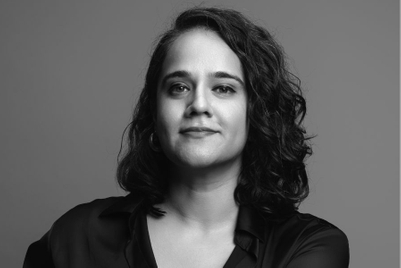
Most of the world's 1.8 billion Muslims live in Asia-Pacific and, as a consumer group, they offer marketers an abundant yet largely unexplored audience.
The numbers speak for themselves. According to a recent study conducted by Ogilvy & Mather - which launched Noor, its own Islamic marketing consultancy, in May - the Halal market is worth US$2.1 trillion a year and is growing at US$500 billion annually.
The Halal market is not alone in offering tempting advertising opportunities to international brands. Other industries include clothing, pharmaceuticals, cosmetics, as well as services in banking and investment, and healthcare.
Yet the opportunity to market to Islamic consumers as a distinct group, particularly by multinational companies (MNC), is largely untapped. With such vast and growing potential, why has this consumer group been ignored for so long? The reason may lie with common misperceptions about the Muslim community, which is believed to be highly conservative and somewhat anti-Western. However, the modern Muslim is a global citizen, but one who is proud of his or her identity and follows the religious teachings of Islam. They have the same needs as other consumer groups, but also have certain cultural and religious fundamentals that need to be respected.
Another reason why the market potential has been missed, is that most MNC brands in Asiahave focused on the big growth markets such as India and China, which have only minority Muslim populations. But as countries such as Indonesia and Pakistan - which combine sizeable populations with dominant Islamic values - continue to flourish, there is an increasing gap in the market that could be profitably filled by advertisers.
Because of this, brands and ad agencies that formerly avoided religion-based marketing are trying to understand the cultural aspects of this consumer group so they can correctly target their products.
Nestle Malaysia, for instance, has already taken a lead in this area and introduced 154 product lines which generate a US$4.85 billion turnover. Similarly, HSBC introduced the Amanah bank in Malaysia in 2004 that follows Shariah banking practices, while UBS, which set up an Islamic private bank in Dubai, has attributed its growth to its wealthy oil-rich Middle Eastern clients.
However, multinational companies need to be aware that the Muslim community is not entirely trusting of brands that simply place a Halal certification on products, or offer services which the organisation claims, abide by Shariah laws. Islamic branding requires a deep understanding of the religious laws, and marketing practices have to be devised that follow the framework of Islamic ethics, without forsaking the consumer's interests.
But once advertisers get it right, they may find the Muslim community is one of the most loyal customer segments. Brands need to win their customers' trust, not through religious messaging, but by projecting an ethical corporate image. Ignoring this market, and its values and needs, is something that brands and marketers in the region do at their peril.
AD AGENCY HEAD
Miles Young, CEO, Ogilvy Worldwide
"The new Muslim consumer's response to messaging is much more sophisticated than it used to be. They absorb many things from the West, but at heart they are looking for something that exists underneath the brand, which is some sense of belief.
Few MNCs have asked themselves whether Muslim consumers have got anything special about them. Whether they have a different relationship with brands and how they should segment them; they are just viewed as one lump. With Noor we hope to open the debate about these issues, informed by our research, which does give, for the first time, an interesting segmentation of the Islamic consumer."
AD AGENY CHIEF
Dean Bramham, CEO Publicis Malaysia
“We work in Malaysia and Indonesia, predominately Muslim markets, so our clients’ brands and our communications address the specific needs of the Muslim community. Muslims are a unique group with very specific needs, especially regarding Halal accreditation. We believe there are great opportunities in catering to Muslim needs. For example, there could be a new food innovation connected to the daily fast during Ramadan when people only consume products such as syrups, dates and kuih (cakes). Brands like Poweraide, KFC or Maggi could create products specifically designed to provide sustained energy throughout the fast.”
BRAND AGENCY HEAD
Joseph Baladi, CEO, BrandAsian
“The idea of an Islamic branding practice makes sense for several reasons and at different levels. Although far from homogeneous, the segment is massive and, relatively speaking, under serviced. Ogilvy’s Noor initiative is likely to trigger similar moves across other network agencies.
Not only is the region’s Muslim population growth outstripping virtually all others, but evidence suggests that more Muslims are identifying more strongly and more directly with their religious roots. This impacts the choice of brands they settle on. This trend is likely to continue at an increasingly accelerating velocity and an acute angle.”
DIRECT MARKETING HEAD
Mohammed Sirajuddeen, CEO Rapp Asia
“I don’t believe Muslims should be identified as a unique consumer group because they are not a unified entity that behaves in a singular fashion.
Muslims are spread across the globe and they behave very differently depending on the local culture and practices of the country they were born in and speak different languages. Having said that, companies need to be sensitive when marketing to Muslims and understand the values of Shariah and Halal in their brand messages. If Muslims are going to be identified as a unique consumer group, should we be segmenting all other religions as well? I don’t think so.”


.jpg&h=334&w=500&q=100&v=20250320&c=1)

.jpg&h=334&w=500&q=100&v=20250320&c=1)
+(1).jpg&h=334&w=500&q=100&v=20250320&c=1)

.jpg&h=334&w=500&q=100&v=20250320&c=1)



.jpg&h=334&w=500&q=100&v=20250320&c=1)







